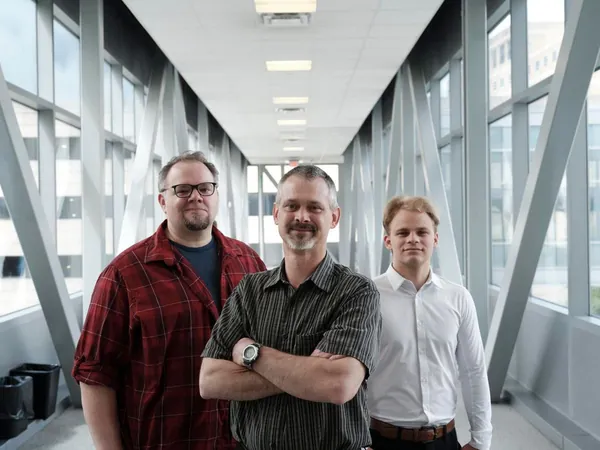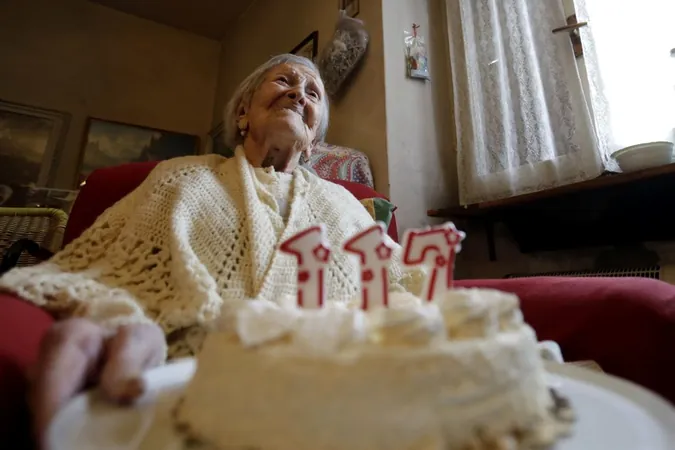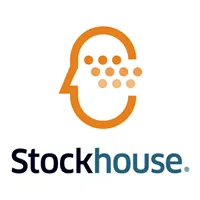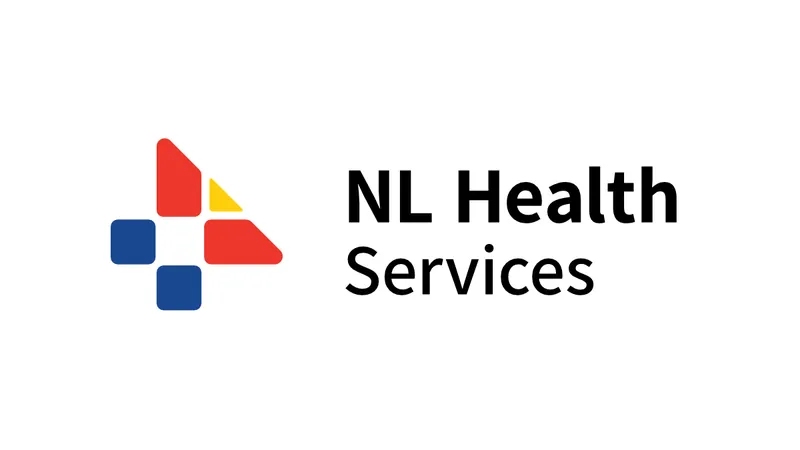
Revolutionizing Recovery: How Virtual Reality is Helping to Combat Drug Addiction
2024-09-30
Author: Jacob
Introduction
In a groundbreaking development, researchers from the Indiana University School of Medicine have launched a startup named RelateXR, harnessing the power of virtual reality (VR) to aid those struggling with addiction. This innovative approach allows individuals to create a 'therapeutic alliance with the self,' empowering them to visualize the stark differences between their future with and without substance abuse.
Research Background
Brandon Oberlin, Ph.D., a key figure in the project and assistant professor in psychology and neurology, states, 'A vast amount of research indicates that individuals with addictions often struggle to connect with their personal futures.' This is backed by findings in behavioral economics, which highlight that those suffering from addiction generally place less value on their future compared to their non-addicted counterparts.
Remedial Imagination Training
RelateXR employs a unique strategy called 'remedial imagination training' that generates personalized avatars based on users’ photographs and mimics their voices. Through this immersive experience, users can 'travel' 15 years ahead and meet two potential future selves: one who has successfully achieved recovery and another who remains entrenched in addiction. This vivid visualization encourages users to reflect on their choices and consider the implications of their current behavior.
Funding and Clinical Trials
The startup has garnered nearly $5 million in funding from the National Institutes of Health and is currently undergoing clinical trials, having tested the program on around 71 participants as of July. With drug overdoses claiming over 96,000 lives annually—primarily driven by opioids—there is an urgent demand for effective treatment alternatives. Indeed, opioids account for approximately 70% of these deaths, underscoring the gravity of the crisis.
Overdose Data
While there has been a slight decrease in overall overdose deaths, with the CDC reporting a drop from 111,029 to 107,543 in 2023, it’s worth noting that fatalities linked to drugs such as cocaine and methamphetamine have risen. Mixing technology with therapy, RelateXR allows users to envision life beyond addiction, picturing positive paths like rekindling relationships, pursuing education, or enjoying new hobbies.
The Vision of RelateXR
'The concept is to provide individuals with a tangible connection to their future selves,' Oberlin explains. 'If they can see a future that feels real, it fosters positive decision-making, a vital aspect often missing in addiction recovery.'
The Team Behind RelateXR
Oberlin has two decades of research experience in addiction, while his team includes Andrew Nelson, who oversees technology development and runs his gaming startup, and Izzy Branham, a business development lead with prior experience in tech-driven talent acquisition. Their app was shaped by insights gained from individuals in early stages of recovery, showing that users experienced enhanced self-efficacy—a critical factor for recovery—within just 30 days of using the platform.
Advantages of Personalized Avatars
The realistic aspect of the avatars, which accurately represent users both in appearance and voice, significantly boosts the app's effectiveness, according to Nelson. As for accessibility, the creators aim to price RelateXR comparably to medication-assisted therapies, which are commonly viewed as the gold standard for treating opioid use disorders. They envision this app as a complementary tool to existing treatment methods, including 12-step programs.
FDA Approval and Future Plans
Currently, discussions are underway with the FDA to classify RelateXR as a medical device, with plans to roll it out to treatment centers and therapists' offices upon approval. The need for innovative solutions is evident, especially as many addicts lose faith in traditional recovery programs. As one recovering substance user from Minneapolis expressed on local TV, the trust built through the app’s self-reliance approach is paramount: 'I only listen to myself; that's the only one I’ll trust.'
Conclusion
This innovative use of virtual reality in addiction recovery could indeed be a game-changer, blending technology with therapy to provide a hopeful pathway to healing. As we look to the future, could RelateXR set the new standard in addiction treatment? Only time will tell.









 Brasil (PT)
Brasil (PT)
 Canada (EN)
Canada (EN)
 Chile (ES)
Chile (ES)
 España (ES)
España (ES)
 France (FR)
France (FR)
 Hong Kong (EN)
Hong Kong (EN)
 Italia (IT)
Italia (IT)
 日本 (JA)
日本 (JA)
 Magyarország (HU)
Magyarország (HU)
 Norge (NO)
Norge (NO)
 Polska (PL)
Polska (PL)
 Schweiz (DE)
Schweiz (DE)
 Singapore (EN)
Singapore (EN)
 Sverige (SV)
Sverige (SV)
 Suomi (FI)
Suomi (FI)
 Türkiye (TR)
Türkiye (TR)